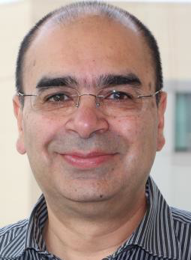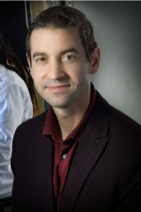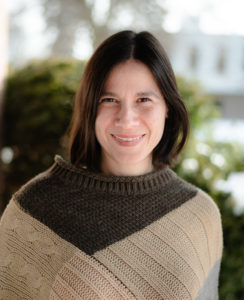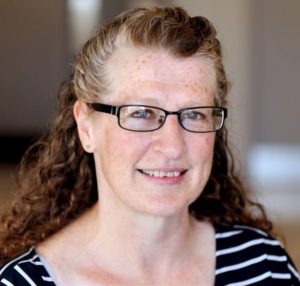Knowledge Exchange:
Suicide Pre & Postvention
 On Friday, February 28, Algonquin College employees and students are welcome to join us for a knowledge exchange exploring suicide prevention and postvention research and best practices in post-secondary settings.
On Friday, February 28, Algonquin College employees and students are welcome to join us for a knowledge exchange exploring suicide prevention and postvention research and best practices in post-secondary settings.
Please note that registration is free, but there are limited spaces available.
Agenda:
- 8:30am – 9:15am • Registration/Breakfast
- 9:15am – 9:30am • Welcome
- 9:30am – 10:45am • Dr. Raj Bhatla, Chief of Staff/Psychiatrist in Chief at the Royal Ottawa Mental Health Centre
Topic: What does the data on suicide indicate about risk, treatment and programming? - 10:45am – 11:00am • Break
- 11:00am – 12:15pm • Dr. Zachary Kaminsky, DIFD Mach-Gaensslen Chair in Suicide Prevention Research at The Royal’s Institute of Mental Health Research (IMHR)
Topic: Underlying epigenetics basis of suicide and developing AI based tools to predict and manage those at risk of suicide. - 12:15pm – 1:15pm • Lunch
- 1:15pm – 2:00pm • Andrea Poncia, Coordinator at the Ottawa Suicide Prevention Network and April MacInness, Senior Mental Health Advisor, at the University of Ottawa.
Topic: Postvention best practices in a post-secondary environment. - 2:00pm – 2:45pm • Tracy Foster, CMHA Ottawa Post Suicide Support Team
Topic: Best practices in supporting those impacted by the suicide of a colleague, student or family member. - 2:45pm – 3:00pm • Break
- 3:00pm – 4:00pm • Hannah Rosen and Alexa Hassall Shipman, Jack.org
Topic: Engaging post-secondary students in peer support activities around suicide prevention. - 4:00pm – 4:15pm • Closing Remarks
About the Speakers
9:30am -10:45am • Dr. Raj Bhatla
Dr. Raj Bhatla, MD, FRCPC, DABPN 
Dr. Bhatla joined the Royal Ottawa Hospital in 1992. He currently holds the position of Chief of Psychiatry and Chief-of-Staff of the Royal Ottawa Health Care Group. He is an Associate Professor of Psychiatry at the University of Ottawa and a Vice-Chairperson of the Consent and Capacity Board of Ontario. In addition to expertise in concurrent disorders, Dr. Bhatla has an interest in psychiatric ethics and is a member of the Editorial Committee of the Journal of Ethics in Mental Health.
Dr. Bhatla is part of the telemedicine team at the Royal and was recognized as the Ontario Telemedicine Network (OTN) telemedicine champion for the Champlain Local Health Integration Network (LHIN) in 2015.
Dr. Bhatla received his BA with Honours from Harvard University in 1982. He obtained his MD from McGill University in 1987 and was awarded the Mona Bronfman Sheckman Award for the highest standing in psychiatry. He completed his Residency Training in Psychiatry and Fellowship in Addictions at New York Medical College where he received the Mead Johnson Award in Psychiatry.
In 2011, Dr. Bhatla completed the Advanced Management Program (AMP) of the Wharton School of Business, University of Pennsylvania.
11:00am – 12:15pm • Dr. Zachary Kaminsky
Zachary A. Kaminsky, PhD
DIFD Mach-Gaensslen Chair of Suicide Prevention Research, The Royal’s Institute of Mental Health Research (IMHR)
Associate Professor of Cellular and Molecular Medicine, University of Ottawa
Associate Professor of Psychiatry, Johns Hopkins University School of Medicine
Dr. Kaminsky received his PhD from the University of Toronto in 2008 and trained in one of the first labs studying epigenetics in psychiatry. In 2010, he developed a research program at Johns Hopkins using genome-wide DNA methylation microarrays to study brain and peripheral samples in PPD, suicide, and PTSD, generating some of the first epigenetic biomarkers in psychiatry. As Chair of Suicide Prevention Research at The Royal’s IMHR, Dr. Kaminsky studies human populations in attempts to better understand both the molecular epigenetic underpinnings of psychiatric phenotypes and environmental stressors influencing their development in order to enable the generation of true “bench to bedside” translational findings. New directions involve the development of artificial intelligence techniques with social media data to predict future risk to suicidal thoughts and behaviors.
1:15pm – 2:00pm • Andrea Poncia
Andrea Poncia
Andrea Poncia works in health promotion, knowledge mobilization and community education.
In her current role as Coordinator for Suicide Prevention Ottawa, Andrea has developed expertise in supporting over 50 organizations in Ottawa to work collaboratively in implementing evidence-informed practices to prevent and respond to suicide. Her work focusses largely on supporting the community to develop suicide postvention initiatives.
Prior to this, Andrea worked as a policy analyst in suicide prevention within the provincial government, where she helped to inform the creation of a provincial youth suicide prevention plan in Ontario.
Andrea’s career began as a community educator within a youth serving organization where she delivered education and training regarding how to prevent the spread of HIV/AIDS. She built her experience on an undergraduate degree in Communications, and graduate studies in Health Science: Technology and Policy.
2:00pm – 2:45pm • CMHA Ottawa Post Suicide Support Team
Tracey Foster
Tracey has worked in the non-profit sector for over twenty-five years. Her work in suicide prevention, intervention and postvention began in 1989 when she took a position as the Training Coordinator at the Distress Centre where she selected and trained crisis line volunteers. She was first trained to deliver the LivingWorks (LW) ASIST suicide intervention training in 1990 and has delivered over one hundred and fifty workshops in communities in Ontario and Quebec. In 2011, she began working as a consulting trainer with LW offering support to newly trained trainers and mentoring trainers as part of the recertification process. In 2014 she became a 3-day coach supporting trainer candidates during the ASIST Training for Trainers.
years. Her work in suicide prevention, intervention and postvention began in 1989 when she took a position as the Training Coordinator at the Distress Centre where she selected and trained crisis line volunteers. She was first trained to deliver the LivingWorks (LW) ASIST suicide intervention training in 1990 and has delivered over one hundred and fifty workshops in communities in Ontario and Quebec. In 2011, she began working as a consulting trainer with LW offering support to newly trained trainers and mentoring trainers as part of the recertification process. In 2014 she became a 3-day coach supporting trainer candidates during the ASIST Training for Trainers.
Tracey has had the opportunity to work in a number of First Nations communities in Ontario and Quebec delivering ASIST but also supporting community members after a suicide has occurred. She currently delivers ASIST training through the Canadian Mental Health Association (CMHA) Ottawa branch. Tracey also volunteers as part of an Inter-Agency Post-Suicide Support Team in Ottawa offering postvention support after a suicide has occurred. Tracey was part of the original team that developed the post suicide support session format and recently participated in a comprehensive review that was conducted by the Centre for Addictions and Mental Health.
Tracey has a BA in Psychology, an MA in Leadership and Training, a Certified Human Resources Leader (CHRL) designation and is working towards a coaching accreditation with the International Coaching Federation
3:00pm – 4:00pm • Jack.org
Talking about mental health can sometimes be difficult for people – especially those who are struggling or have experienced a difficult situation. While we have done everything we can to ensure our talk is safe and non-triggering as possible, we wanted to provide some content warnings, should you feel the need to supply warnings or make preparations in advance. Some of the themes that may come up when speakers are sharing the stories and anecdotes they’ve been trained to share include academic pressure/stress, anxiety disorder, depression, mental illness, self-esteem/self-image and self-harm.
Jack.org is a charity that trains and empowers young leaders who are revolutionizing mental health. They are working towards a Canada where all young people understand how to take care of their own mental health and look out for each other. A Canada without shame, and where all those that need support, get the help they deserve. With a national network of 2800 young leaders, they’re only just getting started.
Hannah Rosen
Hannah Rosen grew up in a small town called Cochrane, just outside of Calgary in Alberta. She completed her undergraduate degree in Political Science at Queen’s University, and just finished her Master’s in Global Affairs at the University of Toronto. She has always had a passion for mental health; from being a peer counsellor, to dedicating her professional life to mental health in conflict zones. You can usually find her talking about her pug, drinking matcha, or dreaming about being back in the Rocky Mountains (preferably hiking or snowshoeing).
Alexa Hassall Shipman
Alexa is a fourth year student at uOttawa, studying International Development and Business Management. When she isn’t talking about mental health and the importance of taking care of ourselves, she can be found studying, hanging out with her friends, or working out at the gym. Alexa loves the outdoors, and making art. She is super excited to share with all of you why mental health matters so much to her!